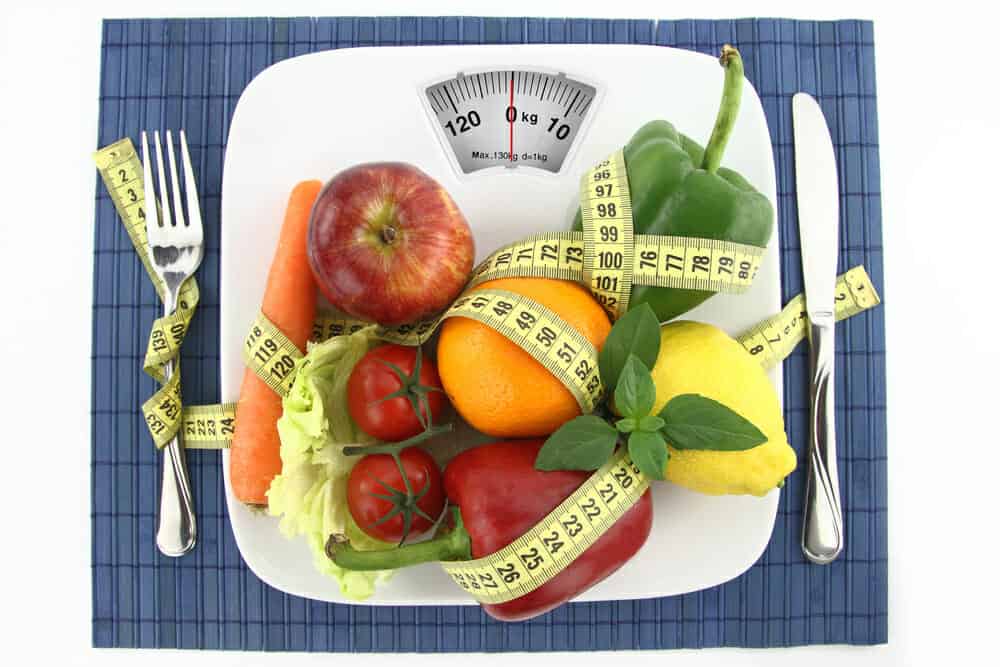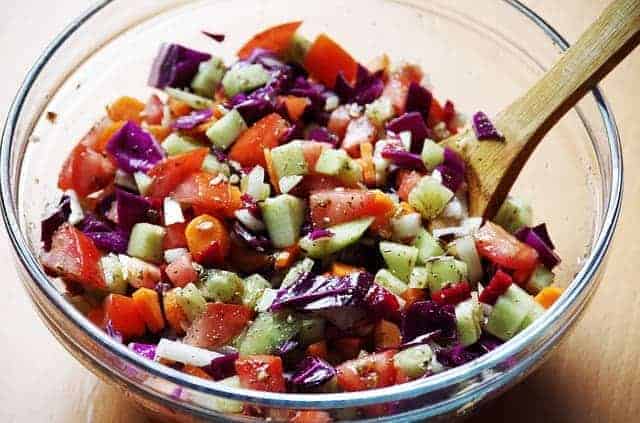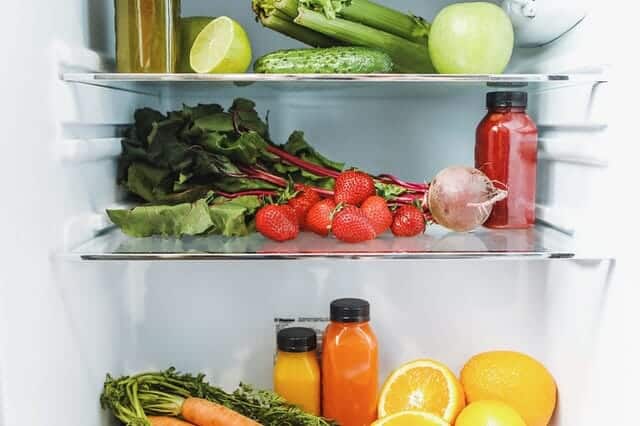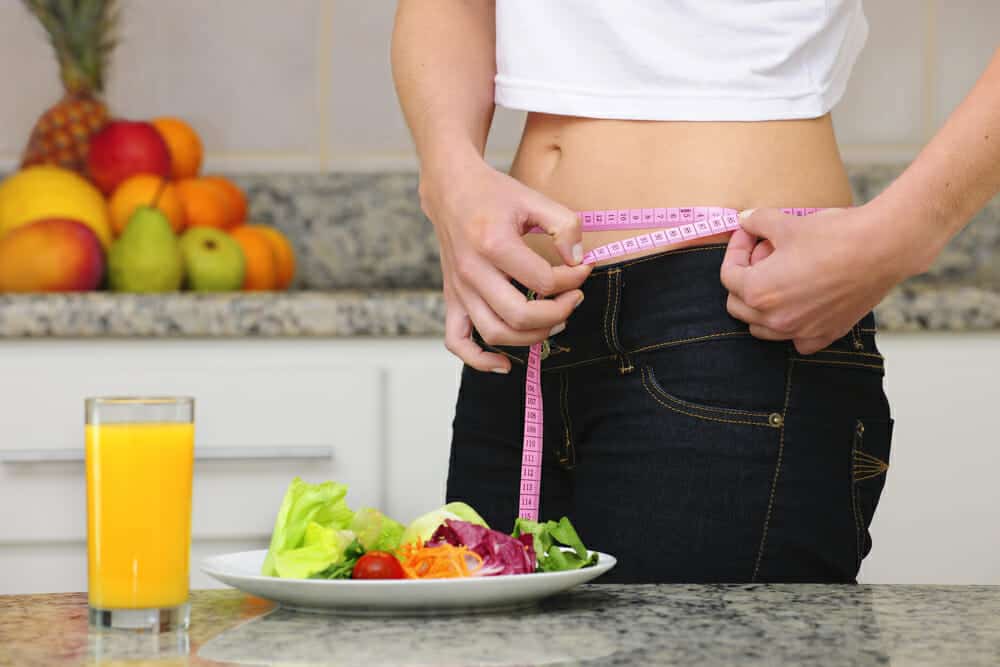How to lose weight fast? Many people determined to lose excess weight in a short time look for instant diets, after which the scale shows 10 or 15 kg less, the figure is slim as never before, and the effects of the treatment are permanent. Unfortunately, generally such instant diets are ineffective. Many of them are characterized by far too low calorie count in relation to the real needs of the body. The other ones focus on one or a few foods that you have to eat all the time… Such starvation and too monotonous diets are definitely not our allies.
Itis best to look for the golden mean and choose such a diet, which does not restrict the menu to one or a few products, and on the other hand is constructed in such a way as to dynamically stimulate the body to burn excess body fat. How to lose weight quickly and effectively? Here are 3 rational, well-prepared slimming diets, which allow you to lose excess weight efficiently and quickly, and at the same time they do not allow hunger and have a varied menu.
Table of contents
How to lose weight effectively?

Not every diet is beneficial for the body. A large part of slimming diets, instead of helping, hinders in losing weight. It forces us to make huge dietary sacrifices, which have a negative impact on our mood and health. Why go on a diet that overloads the body and leads to deficiencies in protein, vitamins, iron or other important nutrients? Why suffer from a diet, which due to its extremely low calories or monotony disturbs the normal functioning of our body, makes us feel bad all the time, and what’s more, after the end of the treatment we experience the yo-yo effect?
It is much better to apply a rational variant of a slimming diet, one in which we reduce the number of calories consumed, but not the number of meals. It is much better to follow a rational variant of a slimming diet, one in which, although we reduce the number of calories consumed, we do not reduce the number of meals.
If you want to lose weight effectively and permanently in a short time it is worth bet on a diet, in which low-calorie, healthy food with high fibre content, as well as detoxifying food and food speeding up the metabolism (e.g. dairy products, fish, spices) take the lead. Here are 3 such diets.
How to lose weight fast – inexpensive and effective vegetable diet

If we want to quickly lose 5 kg or 10 kg, the vegetable diet is ideal for this. In the vegetable diet, contrary to its name, we do not eat only vegetables, although of course they form the core of the menu. Both the vegetables themselves, as well as the ways of composing and preparing them are countless, so there is no danger of dietary monotony.
Vegetable diet rules
Vegetables are the treasury of dietary fiber – the most important ally of slimming figure. This is the kind of food that can be characterized by one simple sentence – you eat and lose weight! Vegetables have very few calories, a low glycemic index (they do not cause jumps in blood sugar), they are filling, nutritious and provide a lot of valuable ingredients. Therefore, they are perfect for the basis of a menu which is to lead to dynamic weight loss.
The vegetable diet menu is divided into 5 meals, which we try to eat regularly (preferably every 2.5 – 3.5 hours). Most meals should be dominated by vegetables in various forms. The meals should be dominated by non-starchy vegetables (e.g. carrots, beetroot, celery, tomatoes, paprika, cucumber, radishes, cabbage, courgettes, broccoli) and much less by starchy vegetables (potatoes, corn, beans).
The vegetable diet lasts from 2 to 5 weeks. After its completion we do not return to unhealthy eating habits. We try to continue maintaining a light, dietetic, healthy menu with a high content of vegetables.
The advantage of the vegetable diet is that we don’t have to limit ourselves as to the size of the meals, especially in the case of dishes that consist only of vegetables or consist mainly of vegetables. Such vegetable dishes (e.g. vegetable soups, vegetable casseroles, vegetable pastes, roasted vegetables, vegetable pates) are distinguished by their very low calorie count, so we can afford solid portions.
The leading part of our daily menu should be:
- vegetables eaten raw,
- vegetables cooked, stewed, grilled or baked without fat,
- vegetable cocktails,
- vegetable juices,
- light vegetable soups,
- vegetable stews,
- vegetable pastes,
- diet vegetable salads,
- salads.
Vegetable diet is perfect for people for whom fast weight loss is a priority, but due to excessive appetite and frequent snacking between meals, they find it hard to lose weight. A diet based on vegetables contributes to stabilizing blood glucose levels, thus eliminating attacks of ravenous hunger and regulating appetite.
At the same time the vegetable diet helps to normalize the digestive processes and reduce such troublesome symptoms as constipation, flatulence. What is important, vegetable diet is not only a way to slim figure, but also to have a healthy body and beautiful appearance. Vegetables are a brilliant cleanser of the body from deposits and toxins. Due to the significant content of vitamins, bio-elements and antioxidants they nourish and rejuvenate the body and comprehensively improve the well-being!
As for other products allowed in the vegetable diet, these are:
- fruits,
- lean poultry meat and lean fish,
- cottage cheese,
- eggs,
- skim milk,
- natural yogurt,
- kefirs,
- thick cereals,
- brown rice,
- seeds,
- wholemeal bread.
However we should remember to treat the above products as additions to meals, not the main component. Vegetables should be the base of every (or almost every) meal!
- Breakfast: omelette with tomatoes and spinach, bowl of salad with iceberg lettuce, olives, peppers (seasoned with lemon juice)
- Second breakfast: a cup of natural yoghurt, 2 carrots, a small grapefruit
- Lunch: a big bowl of vegetable stew and half a glass of buckwheat groats
- Tea time: fruit and vegetable cocktail
- Dinner: salad of peppers, cucumbers, radishes, peas, hard-boiled eggs, tuna (with yoghurt and herb dressing)
- Breakfast: millet groats with pumpkin and pear
- Second breakfast: gazpacho, wholemeal toast
- Lunch: broccoli cutlets, salad plate (e.g. Chinese cabbage and carrot salad, beetroot salad, leek and apple salad)
- Tea time: natural yoghurt with granola and fruit
- Dinner: baked courgettes with mushroom, chicken breast and pepper stuffing
How to lose weight fast – metabolism-boosting yoghurt diet

How to lose weight very quickly without starving yourself and eating the same food for a long time? A good patent may turn out to be the yogurt diet. Its effectiveness in reducing excess weight is due to the specific effect of fermented dairy products on our body.
Why is the yogurt diet a good way to lose weight?
Natural yogurt and other products from the lean dairy category cause a long-lasting feeling of satiation, which prevents us from eating too much. What’s more, thanks to the presence of valuable probiotic bacteria, they help build a healthy intestinal flora, cleanse the body of toxins, regulate digestion, eliminate constipation and flatulence, stabilize the rhythm of bowel movements. Thus, they support slimming down of the waist and hips area and make the so-called belly bulge disappear faster.
What is very important in terms of weight loss, yogurts, kefirs, buttermilk, cottage cheese, as protein products, speed up metabolism and increase the amount of calories burnt by our body (to digest protein we need more energy, hence the calorie consumption is higher). By increasing the metabolic rate, yogurts and similar foods increase the rate of weight loss, even more so if they are consumed regularly and in significant amounts.
Yogurt diet – the rules
Although the yogurt diet is based on one category of products, it is not monotonous or boring. You can let your culinary imagination run wild, especially since you can choose from a wide range of additional products besides fermented milk products.
On a yogurt diet we eat five meals a day. Three of them should be nutritious, complete meals and the other two can be considered snacks.
The basis of the menu in the yogurt diet are natural yogurts and related products, such as buttermilk, kefir and curdled milk. An important component of the menu is also lean cottage cheese. The products are eaten as part of all or almost all meals of the day.
A considerable place in the yogurt diet should also occupy vegetables and fruit. Our menu may also include small amounts of such products as: lean meat, lean fish, groats, brown rice, cereals, bran, grains. We can also eat about 2-3 slices of wholemeal bread every day.
Products not allowed on the yoghurt diet are: sweets, sweet drinks, fatty and floury food, fast food, chips, frozen ready meals, delicatessen meals, red meat, fatty fish.
Yogurt slimming diet should last 14-21 days. During this time you will lose about 5-7 kg. It is important not to return to high-calorie food after the end of the diet, instead, keep a dietary light menu.
- Breakfast: natural yoghurt with seeds and raisins, slices of wholemeal bread with chicken ham, lettuce, cucumber
- Second breakfast: rice bread, smoothie with yoghurt and banana
- Lunch: a portion of meatloaf made from boiled poultry meat and boiled vegetables, half a glass of buckwheat groats, mizzeria (on natural yoghurt or buttermilk)
- Tea time: cottage cheese with fruit
- Dinner: half a graham with hard-boiled egg and tomato, 300 ml of buttermilk
- Breakfast: oatmeal with yoghurt, stewed apple and cinnamon
- Second breakfast: cottage cheese with green cucumber and dill, smoothie with kefir and fruit
- Lunch: light broccoli soup, for the second course 3-4 spoons of brown rice, a piece of roast turkey breast, green beans
- Afternoon: dessert of yoghurt, chia seeds and raspberries or strawberries
- Dinner: a cup of yoghurt, 2 slices of wholemeal bread with mozzarella light cheese, olives and tomato
Check: Cocktails for weight loss – Ranking
How to lose weight fast – body slimming and health improving detox diet

Detox diet not only contributes to efficient weight loss, but also ensures improvement in the work of the entire body. It is an excellent option for people who, in addition to a too high level of body fat, struggle with the accumulation of toxins in the body (caused, for example, by an unhealthy diet, staying in a polluted environment or an excess of stimulants).
What is the detox diet about?
Theexcess of toxins in the body is a very common phenomenon today. Its most common effects include: bad mood, worsening condition of the skin and hair, easy weight gain, increased appetite, weakness, frequent fatigue and tiredness, sleepiness, headaches, problems with concentration, digestive problems, feeling of heaviness, lack of energy, lowered immunity.
Detox diet, which eliminates toxins from the body, will help us to effectively get rid of these symptoms, regulate slowed metabolism, regain vitality, regenerate the body and activate fat loss.
Detox diet lasts from 2 to 4 weeks. Its key components are products that stimulate the body’s self-cleansing processes. These are mainly:
- fiber products (they have the ability to bind and expel toxins, stimulate peristaltic movements, and thus sweep out harmful, unnecessary substances and undigested food remains from the intestines),
- diuretic products (they stimulate kidney function and increase urine production, with which toxins are dynamically removed from the body),
- products that have the ability to purify the blood (e.g. certain herbs, products rich in antioxidants),
- cholepoietic products and products improving liver function.
List of foods that cleanse the body of toxins:
- grapefruits,
- lemons,
- oranges,
- blueberries,
- cranberries,
- apples,
- prunes,
- avocados,
- broccoli, spinach, kale and other green vegetables,
- beets,
- parsley,
- celery,
- onions and garlic,
- tomatoes,
- cabbage,
- artichoke,
- pickled products (cucumbers, sauerkraut),
- young green barley,
- sprouts,
- flaxseed,
- cereals (e.g. oatmeal, barley, rye),
- seeds chia,
- bran,
- wheat germ,
- vital fibre,
- sunflower seeds,
- pumpkin seeds,
- chlorella and spirulina,
- millet groats,
- buckwheat groats,
- barley groats,
- kefir, buttermilk,
- turmeric,
- cloves,
- ginger,
- herbs(nettle, dandelion, thistle, burdock, purgative, birch),
- apple cider vinegar,
- aloe vera,
- green tea.
During the detox diet we try to eat meals regularly, not too few and not too often, preferably every 3-4 hours. Thus, we consume 4-5 meals a day. Products from the list above should be included in most meals. At the same time we make sure that our menu consists of healthy, dietetic food.
What is important, during the diet we remember about drinking plenty of fluids. Throughout the diet we try to maintain the caloric intake at a level of 1400-1500 kcal per day.
The priority in the detox diet is to exclude from the menu sweets, salty snacks, fast food, ready-made meals, bad quality meats, in general all products with low nutritional value, containing a lot of preservatives and other artificial additives, and significant amounts of sugars and fats. Coffee, strong black tea and alcohol are also not recommended.
Due to its multi-tasking nature, the detox diet has more and more followers. It is a good method for quick and efficient elimination of toxins, improvement of physical and mental condition, improvement of organ work, rejuvenation and regeneration of the body and improvement of skin and hair condition. It is also one of the best ways for permanent and effective weight loss.
The menu in the detox diet can look as follows:
- Breakfast: scrambled eggs with tomatoes with parsley, a slice of pumpernickel, half a grapefruit
- 2nd breakfast: wholemeal bread sandwich with guacamole (avocado, chili peppers, coriander and garlic paste), nettle infusion
- Lunch: baked fish, baked yam fritters, Greek yoghurt and garlic dip, red cabbage salad, green tea
- Tea time: blender cocktail made of celery, carrots, pears and apples, handful of pumpkin seeds
- Dinner: diet stew soup (with peppers, tomatoes, mushrooms, onions and chicken breast)
- Breakfast: rich oatmeal (oatmeal previously boiled in water, walnuts, sunflower seeds, dried plums, blueberries, natural yogurt and honey)
- 2 breakfast: wholemeal tortilla rolls with cottage cheese, salmon and basil or rocket
- Dinner: cream soup with green vegetables (e.g. broccoli, celery, leek, green peas), second course: brown rice, shashlik with turkey breast meat, cabbage salad, green tea
- Afternoon snack: wholemeal bread sandwich with hummus and lettuce, glass of water with lemon, honey and ginger
- Dinner: salad of millet groats, olives, capers, peppers and sun-dried tomatoes

